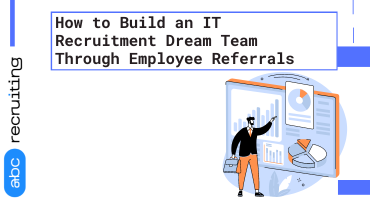So you’re looking to engage a recruitment process outsourcing firm to handle some or all of your company’s hiring. Great idea. RPO providers have the expertise and technology to improve your recruiting efficiency and quality of hire. But before you sign that contract, you need to make sure you fully understand the legal and compliance responsibilities that come with it. As with any outsourcing relationship, there are risks as well as rewards. If you don’t get the details right, you could end up paying big fines, facing lawsuits, or damaging your brand.
The good news is, with some diligence upfront, you can avoid the headaches and ensure a partnership that boosts your business. This article will walk you through the key compliance and legal considerations you need to keep in mind when drafting an RPO agreement. By the end, you’ll be in a much better position to find the right RPO partner and establish a contract that protects both parties.
Understanding the Legal Landscape of RPO
Navigating the legal landscape of RPO can seem daunting, but understanding the basics will help ensure you stay compliant.
Know the laws. Familiarize yourself with employment laws like the Civil Rights Act, ADA, FMLA, and FLSA that apply to your RPO program. These help protect employees’ rights and prevent discrimination.
Review contracts carefully. Scrutinize all contracts with clients and suppliers to understand each party’s responsibilities. Look for clauses addressing liability, confidentiality, non-compete, and intellectual property ownership. Get legal counsel if needed.
Protect sensitive data. Establish policies and procedures to keep personally identifiable information (PII) and trade secrets private. Conduct risk assessments, restrict access, use encryption, and get client approval before sharing data with third parties.
Train and monitor. Educate staff on laws, ethics, and company policies. Monitor programs regularly to identify issues early. Take quick action if noncompliant behavior is observed. Continuous improvement and oversight are key.
Stay up-to-date. Laws and regulations change, so keep learning. Follow authorities like the EEOC, NLRB, and OFCCP for updates. adapt processes as needed to avoid violations.
With diligence, RPO compliance doesn’t have to be complicated. Focus on fundamentals, get help when you need it, and make ongoing improvements to navigate the legal landscape without trouble. Staying proactive and keeping employees’ best interests in mind will serve you well.
Crafting Compliant RPO Contracts
Crafting airtight RPO contracts is key to navigating legal and compliance challenges. To set your program up for success:
Define roles and responsibilities clearly.
Specify exactly what the service provider will handle (e.g. sourcing, screening, onboarding) and what your internal team will manage. Be as detailed as possible to avoid confusion down the road.
Include compliance requirements upfront.
List any industry-specific regulations, certifications or screening processes in the contract. For example, if you're in healthcare, include HIPAA compliance needs. It's much easier to build these in from the start rather than amend the contract later.
Review contractual liability and indemnification.
Determine who is responsible if a candidate's background check is missed or an employee isn't properly vetted. You'll want to ensure you're protected legally in these scenarios. Seek legal counsel to review liability clauses.
Define performance metrics and SLAs.
Include specific service levels, key performance indicators (KPIs) and remedies if SLAs aren't met. For example, set a metric around time-to-fill for roles or candidate satisfaction scores. SLAs help guarantee the level of service you expect.
Allow for flexibility.
While comprehensive contracts are important, you'll want to build in provisions to revisit and revise the agreement as needed. RPO relationships are often multi-year partnerships, so enabling flexibility for changes in priorities, technology, compliance and more is key.
With a well-crafted contract in place, you can forge an effective partnership with your RPO provider and gain crucial visibility and control over legal and compliance risks. Focusing on roles, requirements, liability, metrics and flexibility will set you up for RPO success.
Managing Ongoing Compliance Needs in an RPO Model
To stay compliant as an RPO, you’ll need to continuously monitor various regulations and make adjustments as needed. Some of the key areas to focus on include:
Data Privacy and Security
With access to sensitive employee data, data privacy and security should be a top priority. Stay up-to-date with laws like GDPR and CCPA, conduct regular audits of your data handling processes, and implement strong security measures like multi-factor authentication and data encryption. It’s also a good idea to maintain data breach insurance in case of any incidents.
Pay Equity and Compensation
As an employer of record, you’ll need to ensure pay equity and fair compensation for all employees. Review your pay structures and job evaluations regularly to identify any gaps, and make adjustments to comply with equal pay laws. You should also stay current with minimum wage changes and overtime rules in all locations where you have employees.
Harassment and Discrimination
Establish and enforce clear policies against harassment, discrimination, and workplace violence. Provide regular training for employees and managers, offer confidential reporting channels, and take swift action against any violations. Review hiring practices to prevent discrimination as well.
Contingent Workforce Compliance
The rules around hiring and managing contingent workers like contractors and freelancers can be complex. Understand the differences between employees and contingent workers, and ensure proper classification, contracts, and compliance with IRS guidelines. Misclassification of workers is a major area of risk.
Keeping up with ongoing compliance needs is challenging but critical for any RPO. By focusing on key risk areas, staying up-to-date with the latest laws and regulations, and making compliance a priority in your day-to-day operations, you'll be well positioned to avoid penalties and legal issues. Continuous monitoring and adaptation are key.
So there you have it, the key things you need to keep in mind to make sure your RPO engagement stays on the right side of compliance. It may seem like a lot to take in, but don't let that discourage you. Tackle it step-by-step, build good processes, choose partners wisely, and keep the lines of communication open. The benefits of getting RPO right - reduced costs, improved quality of hire, and the ability to scale your recruiting function - make the effort worthwhile. With the proper due diligence and the right mindset of shared responsibility with your provider, you'll be poised to reap those rewards. Now go out there, do great work, and build an amazing team!




